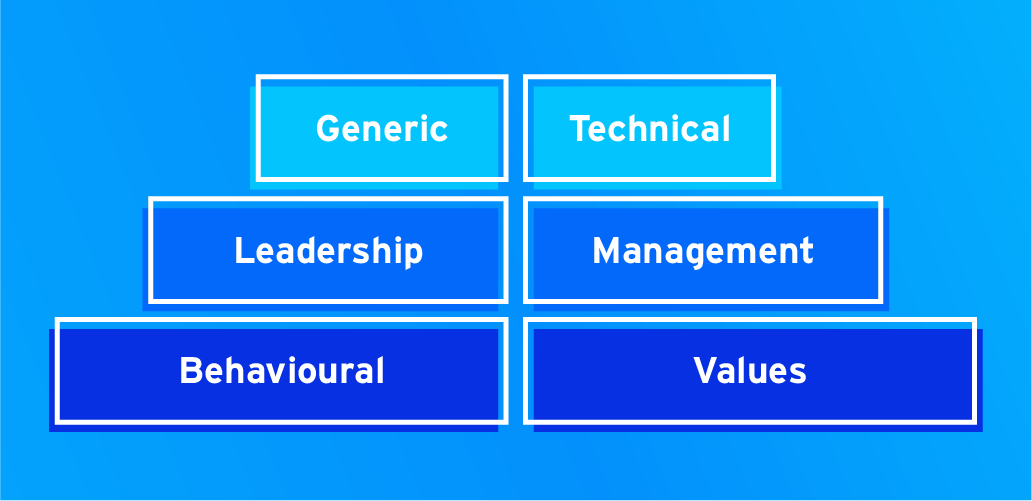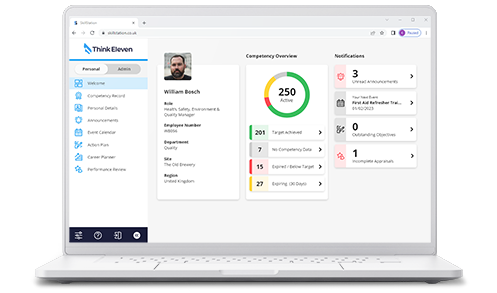What are core competencies? How do we use them to go beyond a conventional approach of training/skills records? If you wish to achieve dominance in your market, or sustain your current position, then understanding core competencies is critical to this objective.
Core competencies are the enablers that both define and underpin why, how and what your organisation does, whether that’s a product and/or service. Your core competencies support the execution of your strategy, objectives, and underlying functions of the organisation. They are the foundation from which your organisation operates. They go beyond a conventional approach of training/skills records and should be difficult for your competitors to emulate.
If you wish to achieve the number one position in your market, or sustain your current position, then it is your core competencies that will both drive and support this objective.
Core competency categories
The following categories are core competencies and should be developed for any organisation regardless of sector or size.
Values
Form the foundation of your entire competency framework and are quite often the most overlooked aspect of a competency framework. Value-based competencies link and underpin the Core Competencies, and might include attributes such as:
- Authenticity
- Integrity
- Respect
- Professionalism
- Proactiveness
Behavioural
Employees demonstrating the right behaviours (also a foundation) are essential when it comes to customer service and satisfaction, including internal and external customers. Defining behavioural competencies that affect how products and services are delivered can help ensure the right behaviours become ‘baked in’ to the culture and can even help differentiate you against your competitors.
Leadership & Management
Leadership and management competencies are critical to the success of any organisation. Well defined and assessed competencies in this area will ensure that managers and leaders are able to set the strategic direction and maximise employee engagement and commitment to a common organisational goal and purpose. An organisation that demonstrates proficiency in these skills will often have far better workforce utilisation, leading to increased efficiency, customer satisfaction and profit.
Generic
Encompass knowledge, skills and competencies that apply to all people within the organisation, regardless of their role. For example, this could include proficiencies related to your induction/on-boarding process. Is your induction and on-boarding process engaging, impactful and transformational? It is the first impression you often make as an employer with your people! Is it setting the right tone/message about who you are and what your organisations stands for?
Technical
Mainly focused on the technical capabilities i.e. knowledge, skills, expertise and tasks associated with each role/function. These are often influenced by the sector in which you operate. A company's core competencies may include precision skills that help it build a core product but may also be useful in making related products. These will naturally vary across your departments/teams and help to identify subject matter experts or problem solvers.
The key to effectively implementing and deploying these competencies is to go beyond defining them, but ensuring they are lived and breathed within the organisation. Agree on a standardised and objective approach that clearly defines expectations and levels of performance, from which people can be fairly assessed without prejudice.
Want to know more?
If you would like to know more about core competencies or building a competency framework, then please feel free to get in touch!



